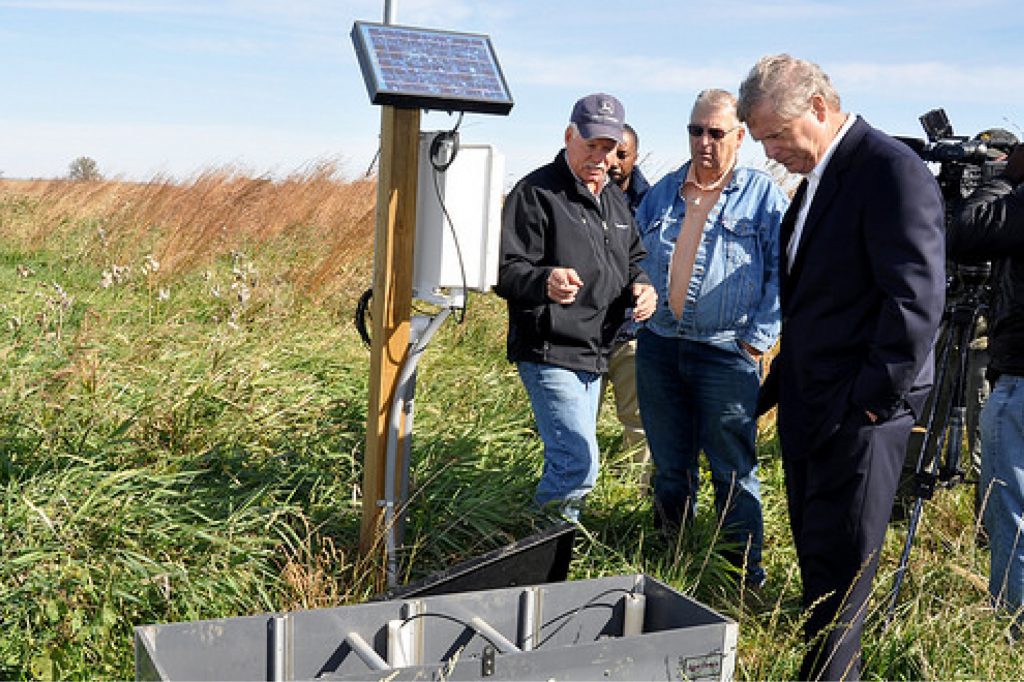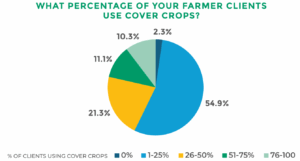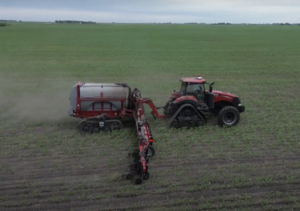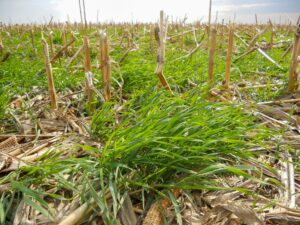By: 4R Plus
February 2020

Black Hawk County farmer Nick Meier is actively involved in Miller Creek watershed activities because he’s interested in the on- and off-farm benefits of 4R Plus practices. He encourages farmers to think about the economic benefits for the farm, as well as their communities, when considering new practices.
Meier changed his tillage practices 30 years ago when he saw the soil moving off the farm during heavy rain events. “I switched to no-till and strip-till to protect against erosion. I want the soil to be there now and for future generations,” he said. “It bothers me when I drive through farm country and see soil moving off the farm. We need to be doing a better job of preserving our natural resources.”
When explaining his passion about soil and water conservation to other farmers, he talks about his mindset shift and the success he has working with his watershed coordinator to implement practices. “Because it’s always been done a certain way doesn’t mean that way needs to continue,” he tells farmers. “My yield curve continues to rise and through extensive testing, I know the organic matter is rising.”
Clark Porter, the Miller Creek watershed coordinator, says working with farmers keeps him rooted in his farming background. “We have shared values in regards to conservation and the legacy we’re leaving to future generations,” he said. “It’s rewarding to work with farmers who want to leave the land in better shape and see the benefits to their community.”
Porter is impressed with Meier’s willingness to learn. Five years ago he began experimenting with cover crops and now it’s used on all his acres except for a small portion that’s enrolled in Soil Health Partnership trials so progress can be tracked. “I’m seeing carbon improvements and more earthworms, which greatly improves water infiltration,” Meier said.
Soil testing helps Meier make nutrient decisions that provide a significant cost savings while maintaining an upward yield curve. He installed a bioreactor and a saturated buffer for additional peace of mind. He’s in the final planning stages for constructing a wetland.
“I feel strongly about the benefits 4R Plus practices have for my farm and my community,” Meier said. “I’ve learned that building organic matter helps the soil hold more water to support the crops and reduce flooding impacts.”
A recent study measured the role best management practices like wetlands and cover crops play in reducing flooding risks in the Middle Cedar River watershed, which includes the Miller Creek area. Kris Johnson, Ph.D., deputy director of agriculture, North America, for The Nature Conservancy and one of the authors of the study, is encouraged by stories of farmers and watershed coordinators working together.
Johnson said agriculture holds solutions to issues, like flooding, urban areas face. “The study determined if practices like wetlands and cover crops were implemented on a larger scale, the increased soil infiltration and water storage would reduce flooding within the watershed,” he said.
Meier encourages farmers to attend meetings to learn how they can leave an impact in their watershed. “My hope is more farmers catch on to the good work being done in their watersheds and they will want to get involved and add the practices that improve their soil and have a lasting legacy on their community,” he said.



